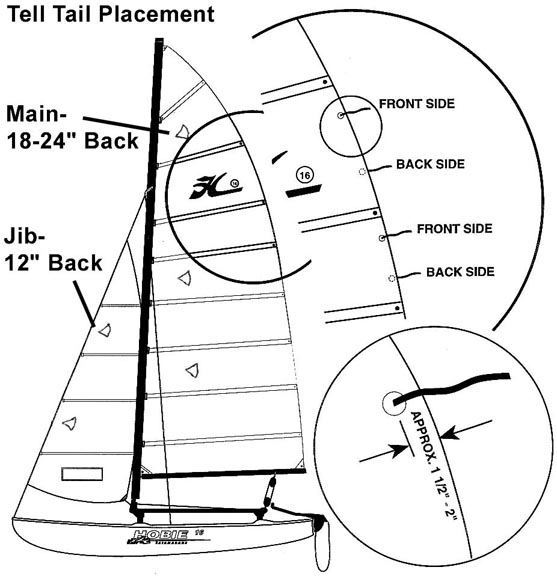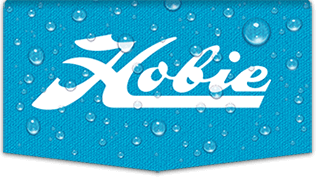Weight too far forward will reduce rudder control. Going to weather crew can sit leeward and just ahead of the shroud. Skippers laying down just to weather of the mast and able to slip aft if rudder control is lost. Caution on over sheeting. That is a common error in light air as you try to get more speed you tend to sheet harder. Get some tail tells on the main leech as noted in a FAQ I wrote some years ago,
Tell Tails are used for a variety of wind indications:
Up high on the top of the mast or on a support stay (shrouds, forestays and bridles on catamarans), would be free to indicate apparent wind direction and undisturbed by the sails.
In the body of the sail to indicate air flow over the sail surface.
On the leech of the sail help to indicate under or over sheeting as well as sail twist.
We simply place the basic sail body ones as a starter. These are the most common used in sailing. I like the leech tails and always have a free swinging wind indicator if I'm racing. I have a couple of diagrams that might help. Designed for Catamarans, but really similar on all sails.
How to place them: How to use them:
How to use them:
The basics are to try and get both standard tells flowing. I would rather see the windward one stall than the lee side. Sheet out or change course until they flow. Then sheet in a bit.
The upper 3rd of the sail is a good location for "leech" tell tails. If you sheet too hard the tell tail will wrap to the lee side. Not sheeting hard enough and the tell tail flows straight aft. The right sheet tension typically causes the tell tails to flow aft then wrap to lee and repeat... alternating. Very difficult to get it all flowing correctly on a Kayak sail due to the limited tension and sheeting controls and no traveler. Catamarans have battens, downhaul, outhaul, and travelers on the sheeting systems... all work together to trim properly for different points of sail (directions you are sailing compared to the wind).







